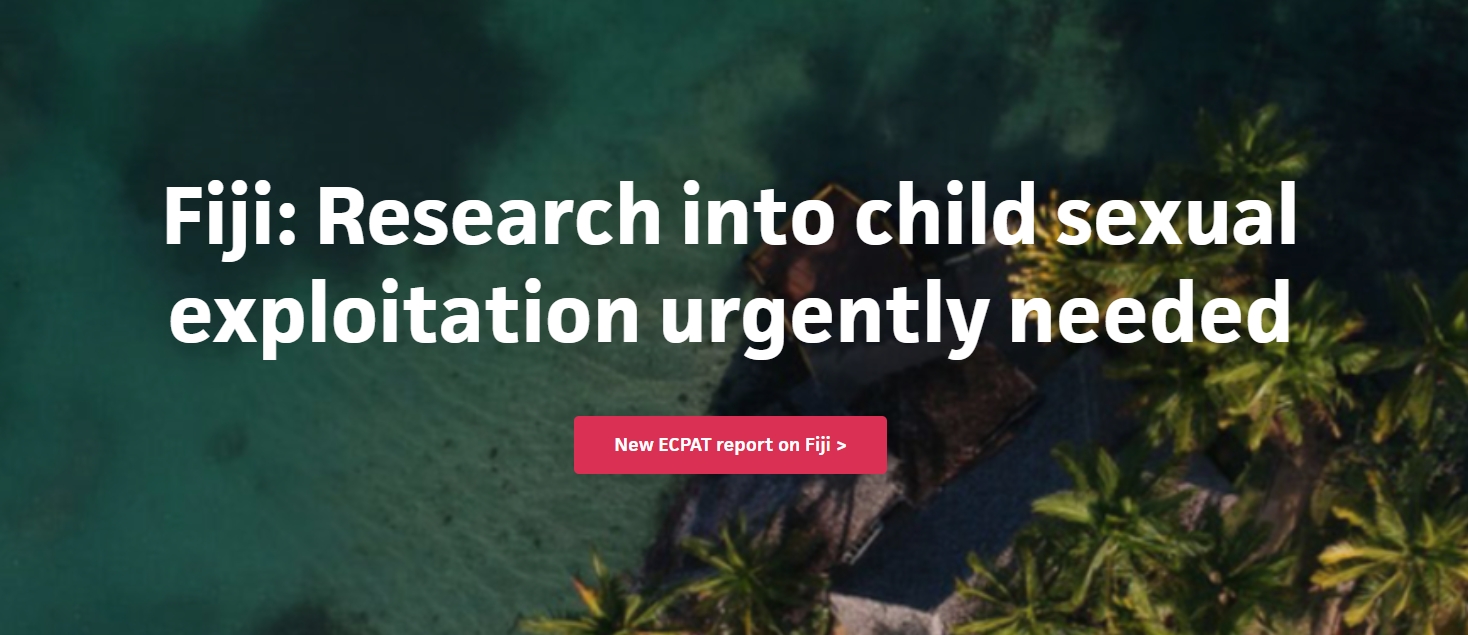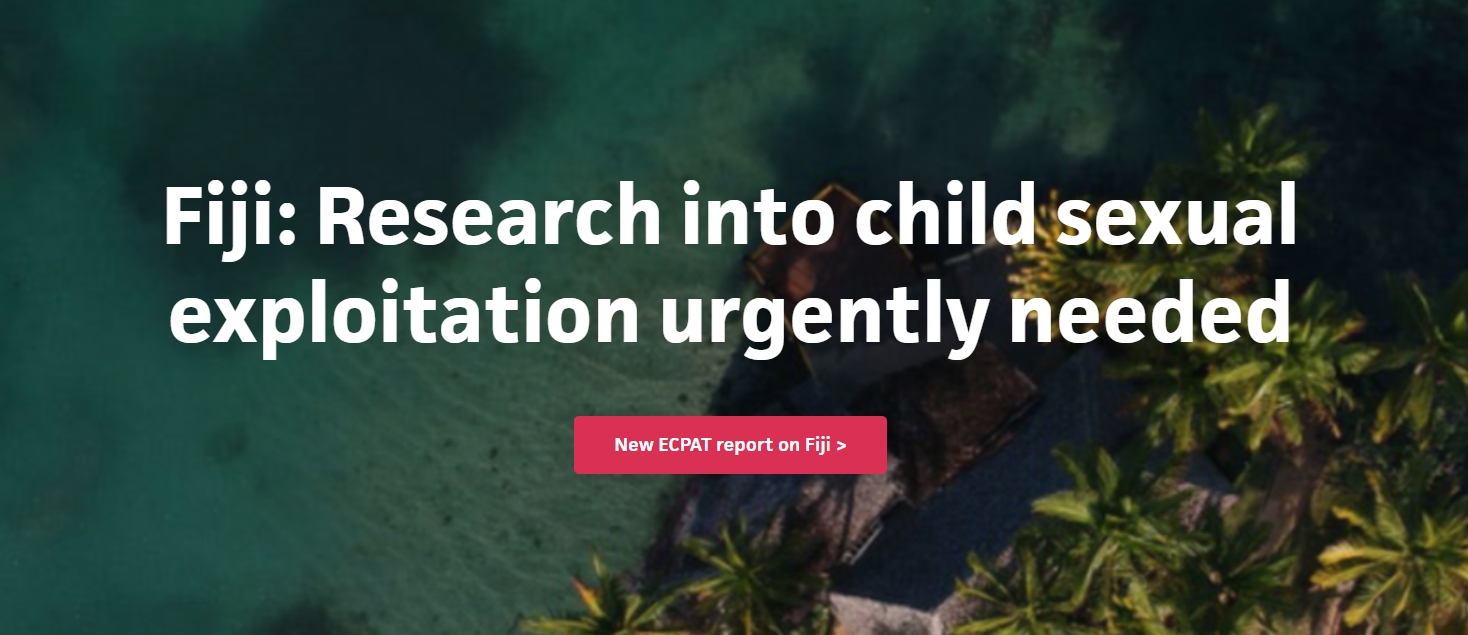By Anish Chand
A new report states that sexual exploitation of children is a serious problem in Fiji and its full extent isn’t known.
The report reveals that changing social structures and mobility has increased risks to children and that lack of information about the problem is hampering child protection efforts.
Released by Thailand based ECPAT International, the report says that recent cases of child trafficking demonstrate a clear need for better research into exploitation and abuse.
While Fiji is a source, destination and transit country for children subjected to international trafficking for sexual purposes –recent cases of domestic trafficking also demonstrate the urgent need to better understand and deal with the problem.
The report says that the last time research into the sexual exploitation of children in Fiji was conducted was 2009. Data from this research revealed that some child victims of this crime may be actively engaging in their own sexual exploitation as a survival strategy, and that children are being transported to locations where they are abused, in particular tourist areas or during festivals.
The ECPAT report also warns of an emerging threat as Internet access increases.
“With more than half of the Fijian population now online, Fijian children face an amplified hazard of sexual victimisation,” the report states.
“Even in the context of an attentive family, children can still be at risk of being sexually exploited online given the often private and hidden nature of many children’s Internet use,” says Iris Low-McKenzie of Save the Children Fiji in the report.
“As in many countries, in Fiji, a major factor is parent’s lack of understanding of the risks that their children face online. Although there is a critical lack of research, several reports confirm that the problem has arrived here and parents need to be much more aware of their children’s activities online,” she said.
The report recommends that Fiji implement the National Plan of Action to Eradicate Trafficking in Persons and Child Trafficking and to provide guidelines and training to law enforcement to increase their knowledge and skills to better identify child victims of trafficking for sexual purposes.

